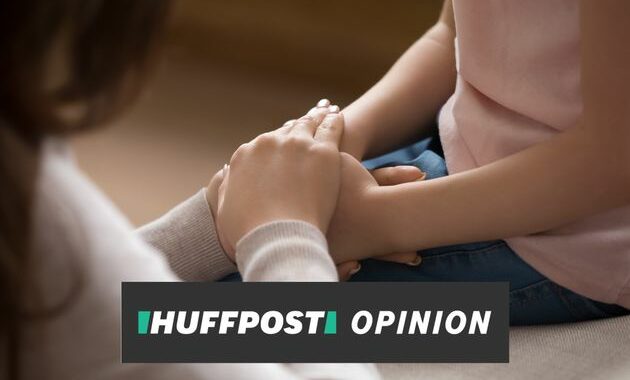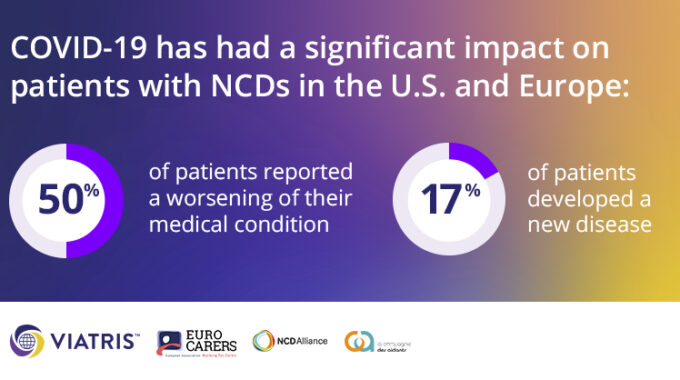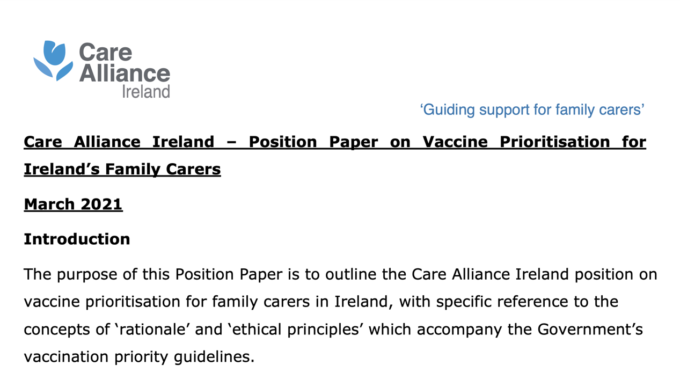
Young carers are struggling immensely during coronavirus and there is no support
Being a young carer is a pretty invisible role, and an incredibly tough one at the best of times, writes Feylyn Lewis for the Huffington Post.
While government has issued guidance and financial measures for many groups in our society, from NHS staff to salaried and the self-employed, one group in particular appears to have fallen off the map.
Young carers — it is estimated there are over 800,000 secondary school age carers in the UK — have received no official recognition during the pandemic so far.
The only relevant advice, recommending family members and friends keep away from the over-70s as much as possible, hinders the one in four young carers who have responsibility for a grandparent.
More attention has been paid to the fact that grandparents often look after young children while parents are working; but we have forgotten that young carers often step up to help grandparents too.
Being a young carer is a pretty invisible role, and an incredibly tough one at the best of times.
Most carry out their duties unbeknown to peers, teachers and employers. They cook, clean, wash clothes, do the shopping, administer medicines, bathe, shower, and toilet their caree and help them dress.
Slightly older carers may also work to supplement family finances, schedule doctor’s appointments and manage household admin like paying the bills.
In migrant families, some young carers translate for family members who may not speak or read English.
Young carers also engage in emotional care; keeping a family member company, or looking after younger siblings. With many schools, children’s hospices and day centres forced to close, young carers’ duties have only increased. And the lockdown, which may last throughout the summer, makes that 24/7 job much more difficult.
In other words, young carers are being pushed to their limit on a number of fronts and desperately need government support.
If family members become ill, young carers will be putting their health, and potentially their lives, at risk by continuing to care for them.
Young carers are already at greater risk of physical health problems like back strain, as well as mental health problems like anxiety, depression and self-harm.
They also traditionally experience higher levels of social isolation and loneliness: nearly nine out of ten admit to being lonely. Social isolation and lockdown only add to that.
Such a challenging role requires support. Young carer projects typically offer weekly face-to-face peer support groups, one-to-one sessions with professional staff members, connections to social care agencies and leisure activities like days out or holiday clubs. A lot of those initiatives have shifted to calls and text messages, or online groups, or have been stopped altogether.
And with “non-essential” NHS procedures de-prioritised, family members in need of care may see their health decline, their pain increase or their needs rise if denied access to treatment.
Caring for family members with underlying health conditions makes the risk of the household contracting coronavirus very high — and potentially fatal.
If family members become ill, young carers will be putting their health, and potentially their lives, at risk by continuing to care for them.
And they do all this without PPE.
Carers have been advised to create an emergency plan involving other family or friends if they fall too ill to care for their family.
But many carers, including young carers, already serve as the last resort safety net for their family.
In the absence of an alternative, the government advises carers to contact their local authority or health provider — services which are already under severe strain.
Structural inequalities only add to the risks. For example, opportunities for young adult carers to find employment to support their families are severely limited and will remain so for the foreseeable future as the economy nosedives. Data also shows that young carers are at greater risk of poverty than their peers.
Yet there are reports from young carers that they are not being allowed into early morning priority shopping hours because supermarket security do not recognise them as “carers”. And in the scramble to obtain online shopping slots, they are at risk of missing out and left to suffer from hunger and food insecurity.
We urgently need clear guidance from the police and government for young carers running family errands so they needn’t fear being stopped or fined for disobeying orders to stay at home.
Given all of the above, it’s astounding that the government has issued no specific support or advice for young carers.
Young carers need specific guidance during the pandemic, as do the professionals, like social workers and medical staff, who serve them.
The challenges presented by the coronavirus are vast and all-encompassing, but that’s no excuse to neglect some of the country’s most vulnerable.
Dr Feylyn Lewis is a former young carer in the US, and is now a research fellow at the University of Sussex, leading research on the mental health of European adolescent young carers as part of the Me-We Project





